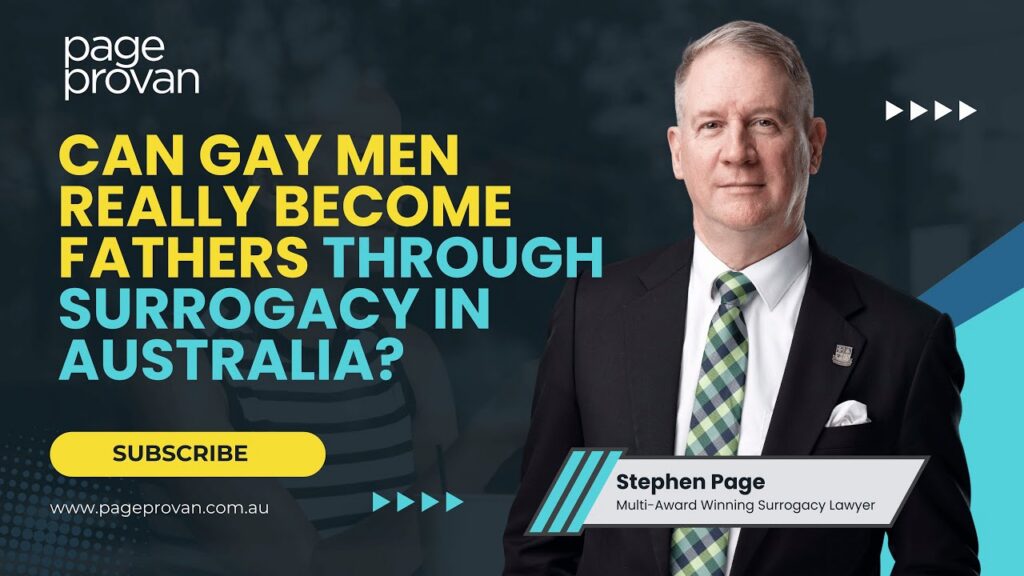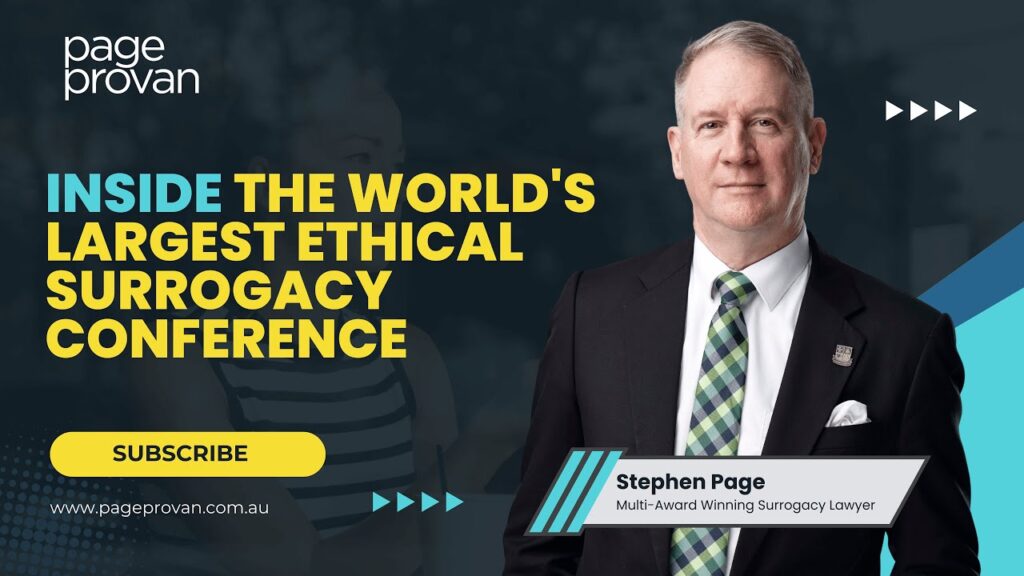McClelland- speech about family law priorities
On Friday the Women’s Legal Service of Queensland held a conference about family law issues. A number of friends attended, including my partner Bruce Provan. I was thinking of attending, but I appeared in court instead.
Federal Attorney Robert McClelland did attend, and delivered a speech about the Government’s family law priorities. What is evident form the speech is that fmaily law will continue to bea focus of government action, and continue to rapidly change. Here tis:
ATTORNEY-GENERAL ROBERT MCCLELLAND
Family Law Forum Conference Riverside Receptions50 Oxlade Drive, New Farm, Brisbane Friday 21 November 2008, 12.30pm
[Acknowledgements]· First, may I acknowledge the traditional owners of the land we meet on – and pay my respects to their elders, both past and present.
[Other Acknowledgements]· Chair – Ms Angela Lynch, Solicitor, Women’s Legal Service, Brisbane· Distinguished guests· Ladies and gentlemen
[Introduction]1. Good afternoon – it’s a pleasure to be here. [A Strengthened Family Law System]
2. Strengthening family law is one of my top priorities.
3. About 40 per cent of Australians will be affected in one way or another by family law.It is a significant legal and social issue.
4. I say this as a parent and as the Attorney-General.
5. Throughout this year, I’ve spoken at many family law events – reinforcing that my guiding principle, like that of the Family Law Act – is to make decisions in the best interests of children. [2006 Reforms]
6. I realise that over the last couple of years you have faced various challenges in adapting to the changes to the family law system.And some of you have concerns about whether the changes are working.
7. I want to assure you that we are aware of the concerns, that we are listening to the feedback, and that we will be mindful of these views when it comes to formulating new policies and making possible amendments to legislation.
8. I have commented in the past that we need to have policy and legislative change that is based on empirical evidence and not on mere anecdote.
9. At the same time I appreciate the trauma and anxiety that people experience when going through painful separation.
10. I frequently hear from individuals about their experiences, their difficulties in finding the required funds to resolve their cases, the distress which arises from dealing with the outcomes of a relationship breakdown. In all likelihood, they will come out of the process with less – reduced access to financial resources, and more painfully less time with their kids.
11. I hear from mothers and mothers groups, fathers and their representatives, agencies that support parents through separation, domestic violence support services, grandparents, carers, guardians, and children themselves.
12. I’m also very aware of media reports and research about the 2006 reforms.
13. In particular, I have read reports about the impact on children of some parenting orders favouring significant sharing of parenting time.
14. I assure you that I am aware of and appreciate the seriousness of all that I am hearing.
15. And I welcome any feedback you can provide me on the outcomes from today’s working groups. [Review and other initiatives]
16. Like you, I want to make sure the changes are working.
17. And I think that, broadly speaking, the most extensive and comprehensive way to do this is with a factual assessment.
18. The Australian Institute of Family Studies has been commissioned to undertake a thorough evaluation of the changes to laws governing family disputes.
19. This evaluation will include a follow up to the 2006 surveys of family lawyers, and the general public.And this will enable comparisons to be made between pre and post-reform attitudes.
20. I understand the surveys will soon be distributed and I encourage you all to respond.Your feedback is crucial in gauging the impact of the reforms – and shaping future directions.
21. But in addition to this comprehensive empirical assessment, there are things we can do, and must do, to address serious issues in the family law system. [Services to help people after separation]
22. One of the things that I believe we should be prioritising as a Government is providing a range of strong and appropriate services to assist parents to live with parenting arrangements after separation.
23. I understand that there are extremely serious cases where there is family violence, and other situations where shared parenting is clearly not appropriate and causing extreme distress for children and their parents.
24. But I also take seriously the evidence that in some cases shared parenting is indeed appropriate, and what is important is how well parents get on after the shared parenting order has been made.
25. This is no easy task, but the Rudd Government is committed to exploring how to best foster and strengthen family relationships and make appropriate arrangements for children whose parents separate.
26. We have already demonstrated our strong commitment to family relationship support. Many of you would be aware that the Government has now funded 65 Family Relationship Centres, family dispute resolution services and services to assist families experiencing high conflict.
27. We need to ensure that these services are given the strength to deal with entrenched family law disputes. They must encourage compromises to be made, in order to achieve the goal of reducing costly and painful litigation.This can be hard – but no one benefits from the trauma and expense of protracted litigation. [Better education]
28. It is also important that we continually educate practitioners, parties in dispute and the general population about the intent and effect of the 2006 reforms, as well as the operations of the family law system more generally.
29. That is why I’m pleased to indicate my support for the Women’s Legal Service’s publication “Mediation on Children’s issues in Family Law” which is now in its third edition.
30. The booklet provides extremely useful information about the mediation process in family law and practical tips to assist women preparing for mediation.
31. It’s important that people are able to access information in an easy to read format to help them navigate the family law system.
32. And I commend the Women’s Legal Service for their initiative.
33. I would also like to acknowledge that this publication would not have been possible without the assistance of funding from the Queensland State Government and Allens Arthur Robinson who assisted with the design and desktop publishing of the booklet.
34. It is also important as a Government that we work to ensure that practitioners maintain the highest standards of professionalism.
35. For example, in September, I announced new accreditation rules for family dispute resolution practitioners.And a key aspect of this is equipping them with the skills to identify family violence. [Addressing Family Violence]
36. Family violence is a concern not only in the context of shared parenting but more broadly as an extremely serious issue which the Government is committed to addressing.
37. It is an unacceptable statistic that violence, abuse and assault afflict one in three Australian women and their families.[1]Most of you would be aware that the Australian Government is working together to address these issues.We have committed to developing a National Plan to Reduce Violence against Women and their Children.
38. This includes implementing strategies·
to support women who have experienced violence·
to ensure that the legal system is effective in handling cases of violence against women, and·
to end the cycle of violence for future generations.
39. Critical strategies addressing child protection and domestic violence are also being developed by my colleague Tanya Plibersek, with the assistance of the Department of Families, Housing, Community Services and Indigenous Affairs.
40. Clearly, the family law system has an important part to play in the prevention of family violence, particularly in respect to the welfare of children.
41. That’s why earlier this year I asked my Department to consult with key stakeholders to find better ways to address family violence in the family law system.And officers from my Department have met with key organisations, including state and territory agencies across Australia, to address this issue.
[De Facto Bill] 42. Another priority area in our first year of Government has been delivering long overdue reforms to enable separating de facto couples to access the federal family law courts on property and maintenance matters.
43. I’ve been disappointed to see recent media reports which have misrepresented the intent, purpose and effect of these new laws.
44. The real story is that these laws finally deliver reforms agreed between the Commonwealth, States and Territories back in 2002 for people in de facto relationships, which now account for around 15 percent of all couples in Australia.
45. There are already laws in place in each State and Territory across Australia to which provide a mechanism to resolve property and maintenance disputes between couples who have lived together for a long period, and who share financial and other resources.
46. But these provide for unequal treatment across Australia. This can cause particular difficulties when couples move interstate.
47. Governments have put these laws in place since the early 1980s based on widespread opinion and evidence that without them a large section of the community, particularly women, are left without legal protection.
48. Consider the case of a 50 year old woman who has lived with her de facto partner for 25 years and stayed out of the workforce while caring for their three children. De facto legislation protects this woman in the event of her partner walking out with all rights to the assets they shared during their relationship. Why should the partner not have an obligation to this woman and her future welfare, after she put on hold her own career and ability to accumulate assets and superannuation?
49. Contrary to some suggestions, the legislation doesn’t impose rights and obligations on couples in casual relationships, and they won’t apply to just any relationship or a mere ‘affair’. 50. A strict test would need to be satisfied before a relationship is considered a ‘de facto’ one. Broadly speaking, if you don’t share resources with your partner, don’t support your partner financially, don’t have a commitment to sharing your life together and/or don’t care for children it is unlikely that you will be bound by these new laws.
51. The principles developed under current state law will essentially be applied at a Federal level.
52. A major benefit of the new legislation for both parties in a relationship is that it allows de facto couples who separate to have their case heard in the federal family law courts. Currently couples would have to go to State local, district or Supreme Courts. The federal family law courts are specialists in dealing with the division of property and assets. They also have a strong focus on non- adversarial processes including mediation, so that only the most intractable matters need go to trial. This saves people in de facto relationships time, money and stress. [Inaugural Conference]53. As we grapple with the serious issues affecting children and parents in the family law system, and as we move forward with strengthening Australia’s family law system, it is essential that we increase communication and professional links.
54. For this reason, I held a roundtable discussion in July, with representatives from different parts of the system.
55. A number of ideas came out of the discussions, including the need to build a common language, and a better understanding of the different roles and responsibilities across the system.
56. These ideas and more will be addressed at the inaugural family law conference I’ll be holding in February.
57. The main aim of this conference will be to build integration across the key sectors of the family law system – the courts, legal practitioners, and family relationship services.It will also address a range of topics, including case management and workforce development.
58. Around 200 professionals from key organisations will be invited to attend.And I’m eager to see what can be achieved. This will be the first in a series of annual conferences, and will help set the scene for future work, monitoring and reform.
59. The conference will certainly address the serious issues facing women and children in the family law system.I know that the Women’s Legal Service has raised their concerns about the need to address family violence. I take that important feedback on board.
[Conclusion]60. Meanwhile, I realise that you and many others are providing outstanding support and services to Australian families – especially to women and children.And I thank you wholeheartedly for doing so.Your skills and dedication are much needed – and much admired.
61. And as you continue with your good work, I ask that you also consider ways in which you can help strengthen the family law system.Clearly a key part of doing so is to increase communication, through events such as this forum.
62. So I wish you the very best for the remainder of today – including the workshops this afternoon.And I look forward to hearing the outcomes.












